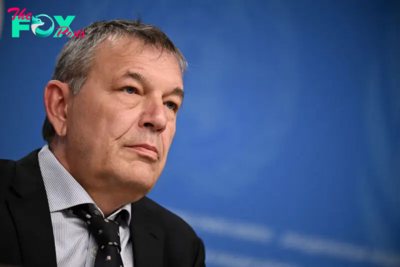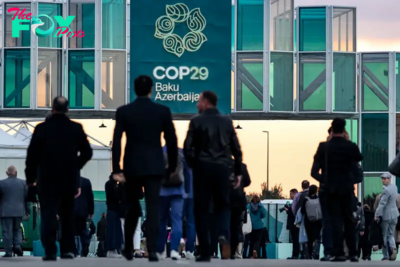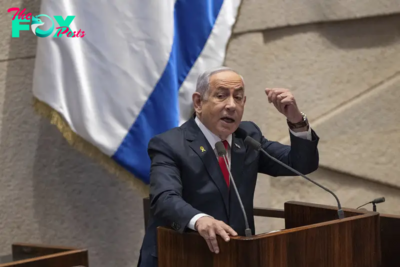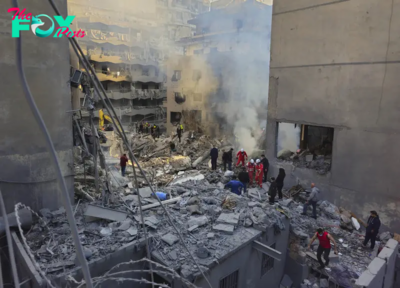World News
Why Rafah Marks a Turning Point in the Gaza War
For months, Israel’s staunchest allies in the U.S. and Europe had largely avoided using the C-word. To call for a ceasefire, they argued, would be to deny Israel its right to root out Hamas from Gaza in retaliation for its Oct. 7 massacre. But as the humanitarian situation in the Strip has deteriorated and as calls for an end to the hostilities have grown, pressure has mounted on Israel and its backers to change tack. Now, as the Palestinian death toll nears 30,000 and as Israel prepares its ground invasion of the Gazan city of Rafah, where more than half of the Strip’s 2.3 million people are sheltering, many Western capitals are doing just that.
Among the first notable shifts came from Australia, Canada, and New Zealand, which on Feb. 15 issued a joint statement calling for an “immediate humanitarian ceasefire,” noting that an Israeli ground offensive on Rafah would be “devastating” and would force its Palestinian civilian population to “pay the price of defeating Hamas.” Days later, 26 of the E.U.’s 27 member states echoed those concerns, calling for an “immediate humanitarian pause that would lead to a sustainable ceasefire” in Gaza. (Hungary, among Israel’s staunchest European allies, was the sole outlier.) Meanwhile in the U.K., the opposition Labour Party, which is widely expected to form the country’s next government, announced that it too backs an “immediate humanitarian ceasefire,” adding that an offensive on Rafah “must not happen.” (Prime Minister Rishi Sunak’s ruling Conservatives continue to oppose a full ceasefire, urging instead for an “immediate humanitarian pause” to allow for the release of Israeli hostages and the flow of more aid into Gaza.) So pronounced is the issue that even the British Royal Family weighed in with a rare statement by Prince William, who on the eve of a House of Commons vote on a nonbinding ceasefire resolution urged an end to the fighting “as soon as possible.”
But perhaps the most notable shift came from the U.S., which this week put forward a draft U.N. Security Council resolution calling for a “temporary ceasefire in Gaza as soon as practicable.” Although a far cry from another resolution put forward by Algeria calling for an immediate ceasefire—which was vetoed by the U.S. on Tuesday on the grounds that it would disrupt ongoing negotiations—it marks the first time that the U.S. has called for a ceasefire at the U.N. since the war began and follows warnings from the Biden administration that an offensive on Rafah would be a “disaster” absent a credible plan to protect civilians.
“The tide has shifted,” says Husam Zomlot, the Palestinian ambassador to Britain, noting that while he is encouraged by the rhetorical change among Western governments, “their starting point was completely off balance.” Many, he adds, still need to match their words with actions, pointing in particular to states such as the U.S. and the U.K. who have lamented the lack of humanitarian aid getting into Gaza while simultaneously defunding UNRWA, the U.N. agency charged with supplying that aid over Israeli allegations that 12 of the agency’s 13,000 staff participated in Hamas’ Oct. 7 attack. (An investigation into the allegations, which are as yet unproven, is still ongoing.)
That the impending Israeli invasion of Rafah has animated such a response speaks to the concerns that many countries, international institutions, and humanitarian organizations have about what would happen if the offensive were to go ahead. Gaza’s southernmost city, which prior to Oct. 7 had a population of 280,000, has since absorbed some 1.4 million people, the vast majority of whom were displaced to the city from other parts of the Strip after being instructed to flee south for their own safety. The conditions are dire, with adequate shelter lacking and disease rife. If any of its inhabitants had anywhere else to go, they probably would have by now. But with the north of the Strip cordoned off by the Israeli Military and the borders to Israel and Egypt firmly shut, they have nowhere left to run.
The situation continues to “deteriorate day by day,” the International Rescue Committee said in a Tuesday statement, noting that only an immediate and lasting ceasefire would enable the IRC and others “to scale up the level of aid that the people of Gaza so urgently need to survive.” A recent study by the London School of Hygiene & Tropical Medicine and Johns Hopkins University projects that, even in the absence of epidemics, an additional 58,260 Palestinians will be killed if the status quo remains unchanged over the next six months; that projection rises to as high as 74,290 killed in the event of an escalation.
Those warnings haven’t persuaded Israel against launching its offensive, which Prime Minister Benjamin Netanyahu framed as a necessary step in the country’s aim to achieve “total victory.” Israel’s opposition leader Benny Gantz, who serves in the country’s war cabinet, set a deadline for the incursion, noting that if Hamas did not release its remaining Israeli hostages by the Islamic holy month of Ramandan, which is set to begin around March 10, “the fighting will continue everywhere, including the Rafah area.”
While this shift appears to be largely driven by concern over what an Israeli offensive in Rafah would mean for the Palestinian population, it also appears to be driven by domestic political considerations. In the U.S., there are growing concerns over the impact of the war and President Biden’s handling of it will have on his re-election prospects. In the U.K., a vote over a nonbinding ceasefire resolution on Wednesday ultimately devolved into party political infighting.
Read More: What Gaza Reveals About the Limits of American Power
“This is not the time for domestic Politics,” Zomlot told TIME as the debate was ongoing. “We see a lot of politicking between parties and point scoring when hundreds and thousands of children are being slaughtered. We will not forget, and we will not forgive.”
As Zomlot, and many other observers see it, Western capitals’ failure to act more quickly in demanding a ceasefire doesn’t only pose a risk to the lives of Palestinian civilians in Gaza, but to the international rules-based order that leaders in the U.S. and Europe purport to want to protect.
“The post-World War II rules-based order is under the most existential threat since it was established,” Zomlot says, “and I believe it will not hold if [the West] doesn’t take action immediately.”
-

 World News11h ago
World News11h agoUNWRA Chief Philippe Lazzarini on the U.N. Agency’s Future in Gaza
-

 World News21h ago
World News21h agoBrazilian Police Indict Former President Bolsonaro for Alleged Attempted Coup
-

 World News1d ago
World News1d agoThe Future of Climate Action Is Trade Policy
-

 World News1d ago
World News1d agoWorld’s Best Brands – Brazil
-

 World News2d ago
World News2d agoWorld’s Best Brands – India
-

 World News2d ago
World News2d agoInternational Criminal Court Issues Arrest Warrants for Netanyahu and Hamas Commander
-

 World News3d ago
World News3d agoLandmark Bill to Ban Children From Social Media Introduced in Australia’s Parliament
-

 World News3d ago
World News3d agoAmerican and Australian Tourists Die in Laos After Drinking Tainted Alcohol



















